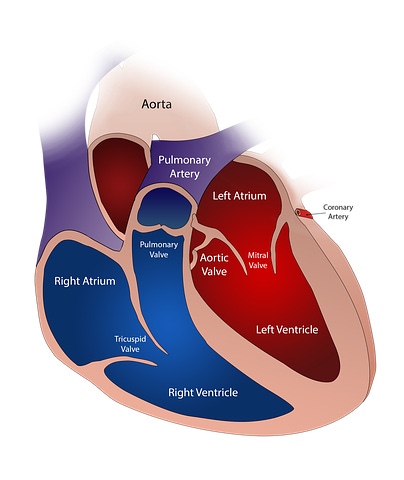Abbott Shines Light on “Forgotten Valve” with New Pivotal Trial
The Abbott Park, IL-based company has launched an IDE of the TriClip, a transcatheter tricuspid valve repair system for the treatment of severe tricuspid regurgitation (TR). Jason Mills, an analyst with Canaccord Genuity points out there are a handful of devices that could help define the TR repair space.
September 6, 2019

Abbott Laboratories’ latest pivotal trial will have the company taking a deeper dive into the treatment of what has been dubbed by some as the “forgotten valve.”
The Abbott Park, IL-based has launched an IDE study of the TriClip, a transcatheter tricuspid valve repair system for the treatment of severe tricuspid regurgitation (TR).
The TRILUMINATE Pivotal trial will evaluate a catheter-based, non-surgical treatment for patients with severe TR – a condition in which the valve doesn't close properly, allowing blood to flow backward into the heart, which forces the heart to work harder.
Abbott's IDE study is set to enroll 700 patients in centers in the U.S., Canada, and Europe. Patients in the trial will be randomized to receive either the TriClip device or medical therapy and followed for a total of five years. The study will also have a single arm for the treatment of subjects with more complex tricuspid valve disease.
TriClip was also accepted for national reimbursement consideration through a process known as "Parallel Review" by FDA and the Centers for Medicare and Medicaid Services.
There is data from an 85-patient trial with sites in the U.S. and Europe that show TriClip’s effectiveness. Results from this trial were revealed during EuroPCR 2019 in May. The results show that after 30 days, 86.6% of patients who received the TriClip device saw a reduction in TR severity of at least one grade. Results also show that a strong safety profile for the procedures in patients considered to be at high risk for surgery, a significant proportion of patients also saw an improvement in their heart failure symptoms as assessed using the New York Heart Association (NYHA) functional classification and Kansas City Cardiomyopathy Questionnaire (KCCQ) score.
"While we've made substantial progress on a number of fronts for challenging structural heart conditions, tricuspid regurgitation impacts far too many patients worldwide, and physicians are limited by a lack of meaningful therapy alternatives to surgery," Neil Moat, MD, CMO of Abbott's structural heart business said in a release. "Early results with our TriClip repair system have been encouraging and we're excited to continue driving innovation that we believe will benefit more patients in the future."
TriClip is built off Abbott’s MitraClip, a device for patients suffering from significant degenerative mitral regurgitation (MR) who do not qualify for traditional mitral valve surgery.
MitraClip gained FDA approval in 2013. Earlier this year, MitraClip won an additional indication to address the secondary form of MR. The indication significantly increases the number of people with MR able to be treated by MitraClip. Abbott obtained the MitraClip through the acquisition of Evalve in 2009.
Tricuspid Regurgitation Market Potential
In June, Jason Mills, an analyst for Canaccord Genuity wrote in a research note the tricuspid valve is often referred to as the forgotten. He noted while the tricuspid valve is getting more attention from an innovation perspective over the past several years, it still receives very little attention in the surgical treatment realm.
“Indeed, tricuspid valve patients today are highly undertreated relative to disease prevalence, Mills wrote. “In part, this stems from a historical practice of trying to treat TR patients too long with medication.”
Mills’ report points to Abbott and Edwards Lifesciences as the two main players in the tricuspid valve space with four devices in development. Irvine, CA-based Edwards is developing three of those - the CardioBand, Pascal, and Forma.
These solutions could play a significant role in boosting the market and shining more light on TR treatment.
“From an industry standpoint, focus on transcatheter platforms for TR continues to increase, with the TR market ripe for disruption, in our view,” Mills wrote in a research note. “If transcatheter tricuspid repair/replacement devices are able to deliver durable results and a low overall mortality rate (historically high surgical mortality rates have also limited TR intervention), we think these technologies could not only capture share from the limited number of surgical procedures performed today, but expand treatment to a broader range of patients earlier along the disease progression curve while also freeing TR treatment from its largely concomitant (with mitral intervention) treatment position today.”
About the Author(s)
You May Also Like




